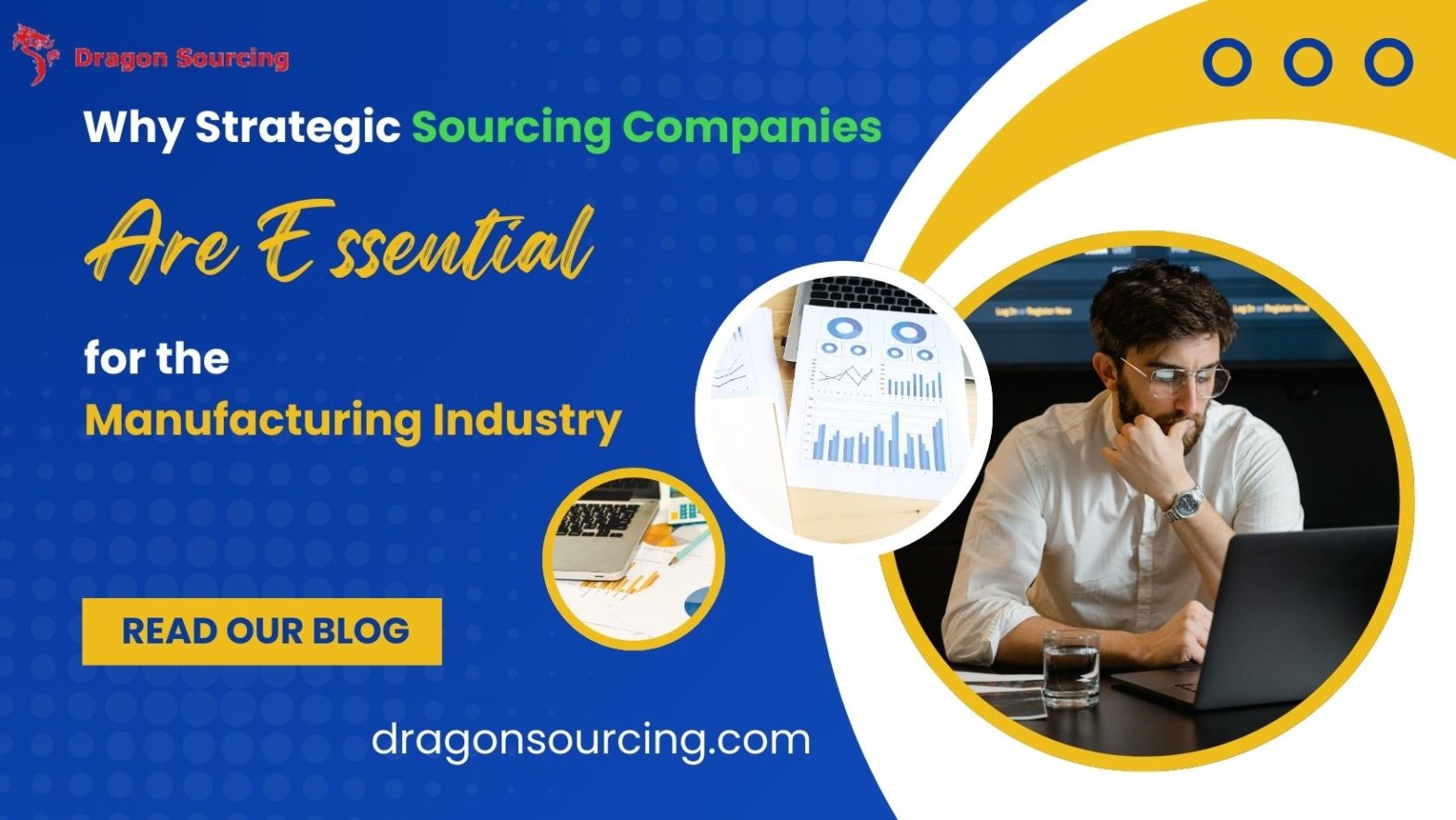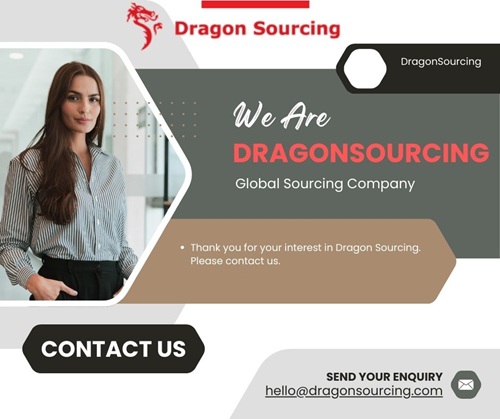
Blog Summary: Why Strategic Sourcing Companies Are Essential for the Manufacturing Industry
Strategic sourcing companies help manufacturers reduce costs through total cost of ownership (TCO) analysis.
They provide access to global, vetted supplier networks.
These firms play a key role in minimizing supply chain risks.
They manage supplier relationships and performance effectively.
Offer scalability and procurement flexibility for growing businesses.
Ensure compliance with environmental and ethical standards.
Provide real-time procurement intelligence for better decision-making.
Allow manufacturers to focus on core operations like R&D and production.
Result: Enhanced efficiency, cost savings, and supply chain resilience.
In an increasingly interconnected global economy, manufacturers face mounting challenges—ensuring consistent quality, cutting costs, speeding up production cycles, and staying responsive to shifting market demands. Meeting these demands goes beyond traditional procurement methods; it calls for a more calculated, strategic sourcing approach.
This is where strategic sourcing companies play a vital role. These expert partners support manufacturers in identifying, assessing, and managing suppliers worldwide, driving greater efficiency, flexibility, and resilience. In this blog, we’ll dive into why these companies have become essential allies for modern manufacturing enterprises.
1. Cost Optimization Without Sacrificing Quality
One of the most compelling reasons manufacturers turn to strategic sourcing companies is cost savings. But this isn’t about simply chasing the lowest price—it’s about total cost of ownership (TCO).
Strategic sourcing firms analyze:
Raw material costs
Logistics and shipping
Tariffs and duties
Lead times
Quality control expenses
By taking a holistic view, they help manufacturers strike the perfect balance between cost and value. This often includes identifying low-cost country suppliers (LCCS) in regions like Southeast Asia, Eastern Europe, or Africa—without compromising on product specifications or compliance standards.
2. Access to a Global Supplier Network
Most manufacturing companies don’t have the time or resources to constantly scan and vet global suppliers. Strategic sourcing companies offer access to prequalified, thoroughly vetted supplier databases across dozens of countries and industries.
Whether a manufacturer is looking for:
Electronic components from Vietnam
Precision machinery from Germany
Packaging materials from China
Eco-friendly fabrics from India
—strategic sourcing firms can connect them with reliable partners quickly.
This global reach not only enhances sourcing efficiency but also diversifies supply chains, reducing dependency on any one region—a crucial lesson learned during recent global disruptions.
3. Supply Chain Risk Mitigation
Manufacturing supply chains are vulnerable to risks such as:
Political instability
Natural disasters
Currency fluctuations
Raw material shortages
Labor strikes
Strategic sourcing companies use risk mapping and scenario planning tools to identify potential vulnerabilities and develop contingency plans.
For example, if a primary supplier is based in a politically unstable region, the sourcing company may proactively identify a backup supplier in a different country to ensure continuity. This reduces operational downtime and gives manufacturers a competitive edge.
4. Supplier Relationship Management (SRM)
Building long-term, mutually beneficial relationships with suppliers is key to consistent quality and reliability. Strategic sourcing firms excel at:
Negotiating favorable terms
Ensuring regulatory and ethical compliance
Establishing performance KPIs
Mediating disputes and renegotiations
They act as an extension of the manufacturer’s procurement team, ensuring that suppliers meet not just contractual obligations, but also strategic alignment with the manufacturer’s goals.
5. Scalability and Flexibility
Manufacturers often need to ramp up or scale down production based on demand fluctuations. Strategic sourcing companies allow them to scale their sourcing operations dynamically, whether launching a new product or entering a new market.
Instead of building an internal procurement department from scratch, manufacturers can outsource this function efficiently, gaining expertise, tools, and market insights without long-term commitments.
This flexibility is especially critical for small-to-medium-sized manufacturers who need enterprise-grade sourcing solutions on a budget.
6. Compliance and Sustainability Assurance
With growing pressure on manufacturers to adopt ethical sourcing and ESG (Environmental, Social, and Governance) practices, strategic sourcing companies play a key role in:
Auditing suppliers for labor practices
Ensuring environmental compliance
Monitoring carbon footprints
Verifying certifications (ISO, SA8000, etc.)
This not only helps manufacturers meet global compliance standards but also strengthens their brand reputation among customers and stakeholders.
7. Enhanced Procurement Intelligence
Strategic sourcing companies offer more than just matchmaking—they provide real-time procurement intelligence to guide better decisions. These insights might include:
Market trends in raw materials
Benchmarking data on pricing
Competitive analysis of suppliers
Lead time expectations across regions
Armed with this data, manufacturers can make informed sourcing decisions, optimize contract negotiations, and reduce inefficiencies.
8. Focus on Core Competencies
By outsourcing sourcing functions to a strategic sourcing partner, manufacturers can focus their internal teams on:
Product innovation
Engineering improvements
Customer experience
Operational efficiency
This division of labor results in higher productivity and accelerated time-to-market, particularly in competitive sectors like electronics, automotive, and consumer goods.
Case in Point: Strategic Sourcing in Action
Let’s consider a real-world example: A South African automotive components manufacturer needed to reduce its input costs by 20% while maintaining international quality standards. A strategic sourcing firm helped them:
Benchmark existing supplier pricing
Identify alternate suppliers in India and Mexico
Conduct quality audits and compliance checks
Establish contracts with staggered pricing mechanisms to handle currency fluctuations
Within 6 months, the manufacturer realized 15% savings and improved delivery times—without disrupting production or compromising on quality.
Conclusion
In a world where manufacturing competitiveness hinges on global agility, strategic sourcing companies provide the expertise, infrastructure, and networks needed to thrive.
They are not just intermediaries; they are value creation partners who:
Reduce sourcing risks
Lower total costs
Expand global reach
Ensure supplier compliance
Empower faster innovation
For manufacturers looking to stay lean, adaptive, and globally competitive, strategic sourcing companies are no longer optional—they are essential.
Resources and References
McKinsey & Company – The Future of Procurement in Manufacturing
Deloitte – Global CPO Survey: Strategic Sourcing Trends
Harvard Business Review – Sustainable Global Sourcing Practices
Institute for Supply Management (ISM) – Supplier Relationship Management Guidelines
World Economic Forum – Resilience in Global Supply Chains



